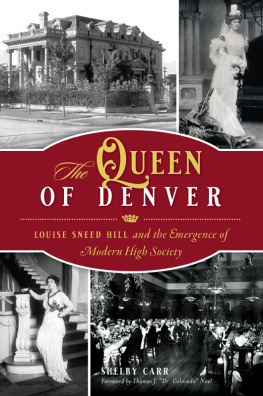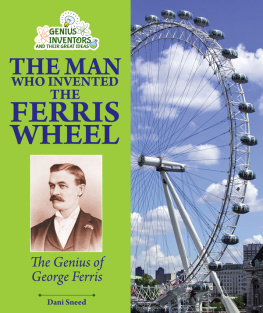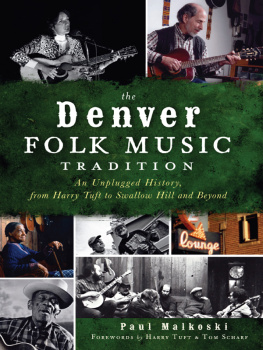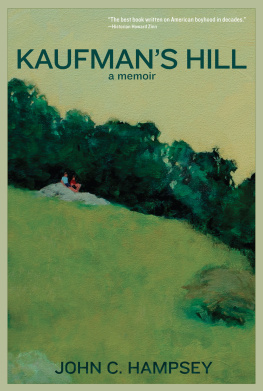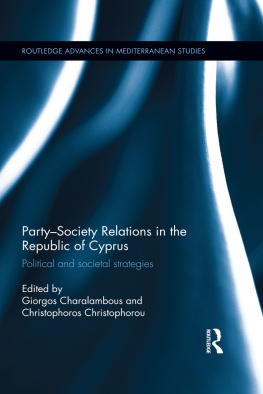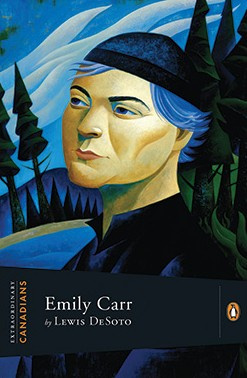


Published by The History Press
Charleston, SC
www.historypress.com
Copyright 2020 by Shelby Carr
All rights reserved
E-Book year 2020
First published 2020
ISBN 978.1.4396.7040.8
Library of Congress Control Number: 2020931996
Print Edition 978.1.4671.4649.4
Notice: The information in this book is true and complete to the best of our knowledge. It is offered without guarantee on the part of the author or The History Press. The author and The History Press disclaim all liability in connection with the use of this book.
All rights reserved. No part of this book may be reproduced or transmitted in any form whatsoever without prior written permission from the publisher except in the case of brief quotations embodied in critical articles and reviews.
It is my business to entertain, and that is a very serious business.
Louise Sneed Hill
CONTENTS
FOREWORD
As the Colorado State historian, a professor of history and director of public history and preservation at the University of ColoradoDenver, I have been fortunate enough to work with Shelby Carr on her prize-winning research on a key but neglected woman in Colorado historyLouise Bethel Sneed Hill. It is a rare treat to have a graduate student display such passion and dedication to historical facts and present them with such creative flair. Shelby is a shining example of why, after forty-nine years of teaching, I suspect my students teach me more than I teach them.
I have had the pleasure of watching Shelby Carr mature into a successful performer and professional speaker, writer and historian over the last four years. As a dancer, she has toured the world, performing in seven different countries. She has also performed as an actress, portraying historical women for the Halloween Tombstone Tours we conduct for History Colorado.
Shelby has also shined as an intern at the History Colorado Centerformerly the State Historical Societyand in the governors office, where she worked as speech writer for Governor John Hickenlooper. She also served as a paid staff member at the Byers-Evans House Museum.
Somehow, she has found the time to also be very active in the communitys civic and philanthropic causes. Within the pages of this book, you will get a wonderful look at how Louise Hill transformed Denver society. Shelby puts to rest many of the myths that have surrounded her life, including her alleged rivalry with Margaret Molly Brown, the unsinkable heroine of the Titanic disaster. Shelbys fresh, lively perspective brings Hill back to life. She captures the daring story of a woman living in a patriarchal time, articulating the transformation of gender, culture, class and consumption during the Gilded Age. Women of the Gilded Age have often been misrepresented or disregarded, even though they held remarkable power and influence. Louise possessed a unique set of social skills, which culminated from her southern roots, northern ties and western experiences. She was able to utilize the social facets that were common in each region to create an entirely new path for the city of Denver. A liberated lady, Louise dared to participate in an open affair and introduce her peers to the flapper girl behavior of the 1920s. In the pages of this book, Shelby will introduce you to this fascinating and important changemaker in Colorados and womens history.
Enjoy!
Thomas J. Dr. Colorado Noel
ACKNOWLEDGEMENTS
This book would not have been possible without the incredible assistance of my graduate school advisors, Bill Wagner and Tom Noel. Their guidance and suggestions on research avenues were indispensable. To the Hill family descendants: thank you for sharing your knowledge of your family history with me and for allowing me to share my research with you all. Much of the information about Louise Hills early life would not have made it into this book without the assistance of Granville County historian Mark Pace. I would like to extend a special thanks to the folks at Haddon, Morgan and Foremanthe law firm that currently owns the Crawford Hill Mansionand, specifically, Renee McReynolds for aiding me in my research process by allowing me to go through the firms archival file on Louise Hill and her home. Lastly, I would like to give a heartfelt thank-you to my wonderful parents for their support throughout this process.
INTRODUCTION
A woman of short stature, high heels and quick wit, Louise Sneed Hill ruled over Denvers high society for four decades with her Southern charm, societal tact and passion for success. To Hill, elite society was, in part, a game that could be lost and won, and she was determined to come out on top. Much like the ideal of the self-made man, which implied success in a professional capacity, shrewdness and wit in business and the acquisition of great wealth, Hill was a self-made woman in terms of elite societal achievement. She aided in ushering in a new era of culture in the United States. She was one of the earliest women to publicly bring about the transition from a Victorian culture to a more modern culture that embraced things like alcohol and leisure activities. Hills personality was, in the words of Denver Post reporter Helen Eastom, the culmination of the delicate grace and dignity of the South and the charming vigor and spontaneity of the West. She combined her southern roots, which stemmed from a relaxed, Victorian culture of leisure, with the morals and puritanical work ethic that were common in the North and the vision of liberal individualism that the West provided to present a new vision of American gentility.
Hill was born in a compelling time, between the Victorian moralists of the preceding generation and the flappers of the next. While the modernization of society is typically attributed to movie stars, celebrities and jazz age contemporaries of the 1920s and the following decades, the members of Louise Hills generation were actually the earliest catalysts for change. Born in the 1860s, Hill, who had aspirations of leading high society, had to find a delicate balance between reconciling with the older generation and bringing about new traditions to satisfy the more modern, vogue-inclined individuals of her own generation and the following generation, who entered the social scene during her reign. Oftentimes, it was this uncharted middle ground that made so many of her decisions appear paradoxical. While she felt that much of society was too stringent, she still hearkened toward maintaining control and policing society; she felt that the reins needed to be loosened but authored a book on social etiquette. She desired an essence of strictness with playful qualities; she introduced animal dances (such as the worm wiggle and turkey trot) and championed the enjoyment of alcohol and other frivolous activities, like roller-skating, to the privileged class. Throughout her tenure as the doyenne of Denvers upper crust, Hill walked a fine line between the old and the new at a time when American society was unsure of its social direction as it entered the first decades of the twentieth century.
In Hills time, high society was a queer game. Those outside of Hills inner circle were warned by the press: if an individual was not prepared with the required skills to enter the arena of elite society, they were instructed to heed the warning and beware what they might encounter. Hill used her intelligence, ambition, passion and money to create a legitimate aristocratic-style high society in the city of Denver. She created the game and served as its master, arbiter and most-decorated player.
Next page
